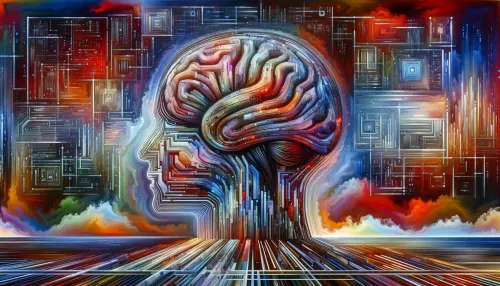Tech Titans and Educators Unite: Shaping an Accessible Digital World for Autistic Learners

The digital age offers boundless opportunities for learning and development, and with the right tools, the horizon of possibilities expands even further for autistic children. At HorizonsMind Blog, we strongly believe that technology can pave the way for inclusivity, especially in education. This conviction is shared by a growing number of tech titans and educators who are collaborating to create an accessible digital world tailored to the needs of neurodiverse learners.
Creating Learning Apps for Autistic Students
Pairing the ingenious minds of software developers with the experience and empathy of special education teachers has given rise to a wave of learning apps specifically designed for autistic students. These apps include features like customizable settings, allowing users to adjust sensory inputs according to their individual preferences. They also incorporate a structure that is aligned with the predictability and routine many autistic children find comforting. Developers and teachers test these apps in real classroom environments, making iterative adjustments to enhance their effectiveness, thereby creating an indispensable resource for both educators and parents.
Major players in technology are recognizing their role in fostering accessible education. Companies like Google and Microsoft are revamping their virtual classroom tools to better serve neurodiverse communities. These enhanced platforms feature options like speech-to-text for students who have challenges with handwriting, video relays for those who struggle with auditory processing, and interface customization for those who require a simplified visual layout. The design of virtual spaces where autistic learners thrive is now an intrinsic part of Silicon Valley’s mission to support inclusive education.
Enhancing Virtual Classrooms for Neurodiverse Learners
One-on-one mentorship programs initiated by tech companies are providing autistic students with guidance as they navigate the complexities of digital skill development. These programs connect students with mentors who have expertise in areas such as coding, graphic design, and user experience (UX). Moreover, they're tailored to accommodate diverse learning styles and pacing. By nurturing talents in a supportive environment, these mentorship initiatives help build confidence and open up pathways to future employment within the tech industry.
In a concerted effort to make digital tools more accessible, developers are crafting barrier-breaking algorithms that adapt content presentation based on user needs. These advanced algorithms consider factors like language simplicity, color contrast preferences, and proactive content summarization to assist with cognitive processing. Working alongside the autistic community, programmers are ensuring these algorithms improve app interfaces and web experiences in an empathetic manner.
Related Article: Wearable Tech Advancements: Empowering Autistic Children with Innovative Therapeutic Interventions
Tech Mentorship Programs for Autistic Students
Gone are the days of one-size-fits-all solutions – today's user interfaces are being designed with direct input from autistic individuals. Tech companies are involving users at every stage in the design process, ensuring feedback from the target audience shapes a more intuitive user experience (UX). Through participatory design sessions, designers learn about specific user needs such as reducing sensory overload or improving navigational cues, leading to innovations that make the digital world more accessible for all.
Collaborative Coding and Accessibility Algorithms
Silicon Valley giants continue to strengthen their outreach by providing advanced tools that revolutionize special education. They make these resources available through partnerships with schools and therapeutic centers, sometimes offering them at discounted rates or as donations. By leveraging cutting-edge technology such as augmented reality (AR) for experiential learning or harnessing data analytics to personalize learning algorithms further, these companies demonstrate their commitment to supporting the neurodiverse community’s educational journey.
Designing User-Friendly Interfaces with Autistic Input
Lastly, gaming has emerged as a dynamic platform for teaching social skills collaboratively among neurodiverse groups. With specially designed games that simulate social scenarios or offer cooperative tasks requiring teamwork, players get a chance to practice communication strategies in a low-stakes environment. These game-based environments encourage positive interactions and offer instant feedback both crucial elements in fostering social development for autistic learners.
Frequently Asked Questions
Learning apps tailored for autistic students provide customizable settings to adjust sensory inputs and a structured routine that many find comforting. These apps are tested in real classrooms, ensuring they meet the unique needs of autistic learners and serve as valuable resources for educators and parents alike.
Tech companies like Google and Microsoft are improving virtual classrooms by adding features such as speech-to-text options, video relays, and customizable interfaces. These enhancements aim to create supportive learning environments that cater specifically to the needs of neurodiverse students, fostering inclusivity in education.
User input is crucial in designing digital interfaces for autistic individuals because it ensures that the final product meets their specific needs. By involving users in the design process, companies can create intuitive experiences that reduce sensory overload and improve navigation, ultimately making technology more accessible.
Check Out These Related Articles

Balancing Screen Time: Navigating Digital Overload in Autism Caregiving

Empowering Through Technology: Success Stories in Autism Education

Robotics Revolution: Empathy Robots Teaching Social Skills to Autistic Children
